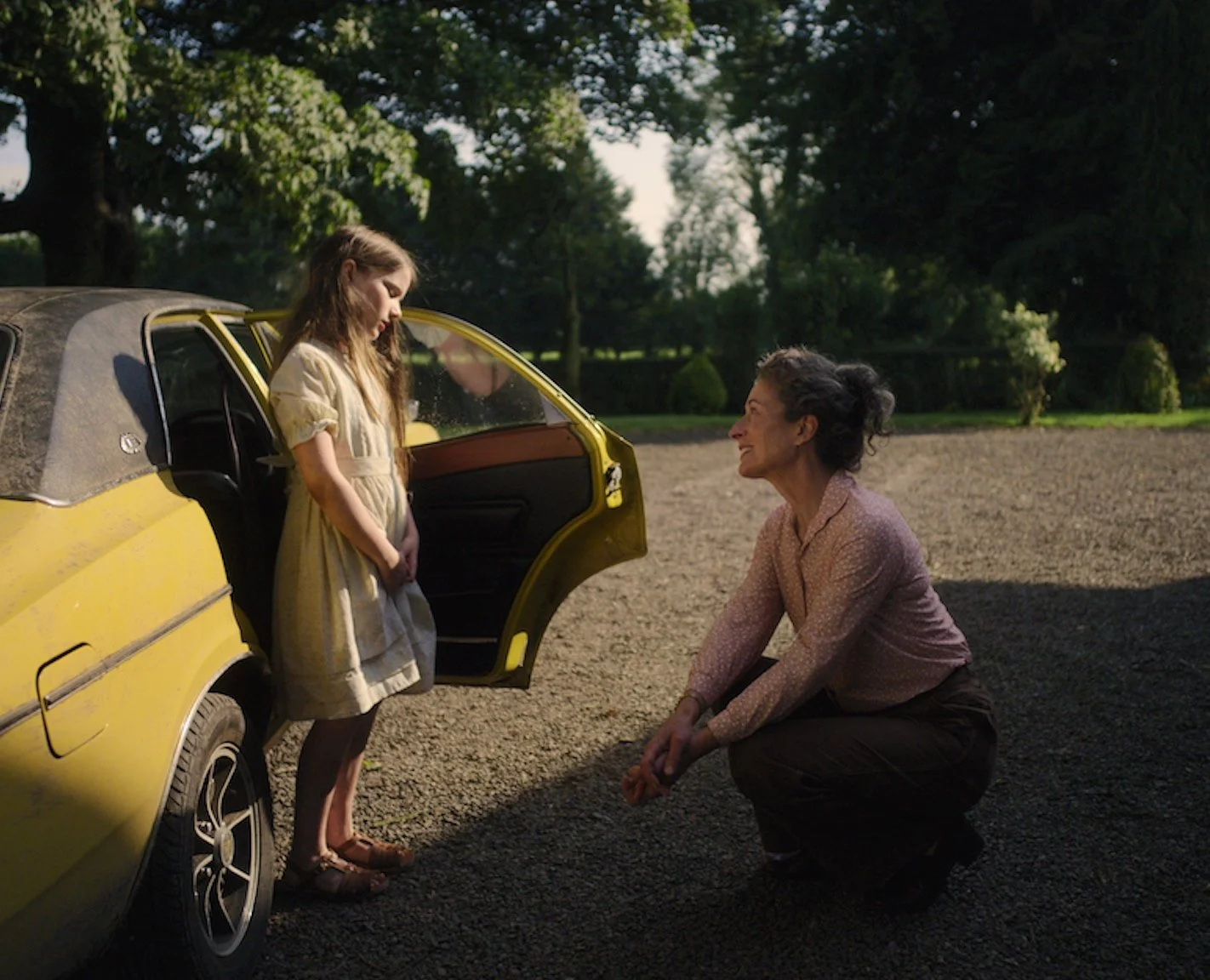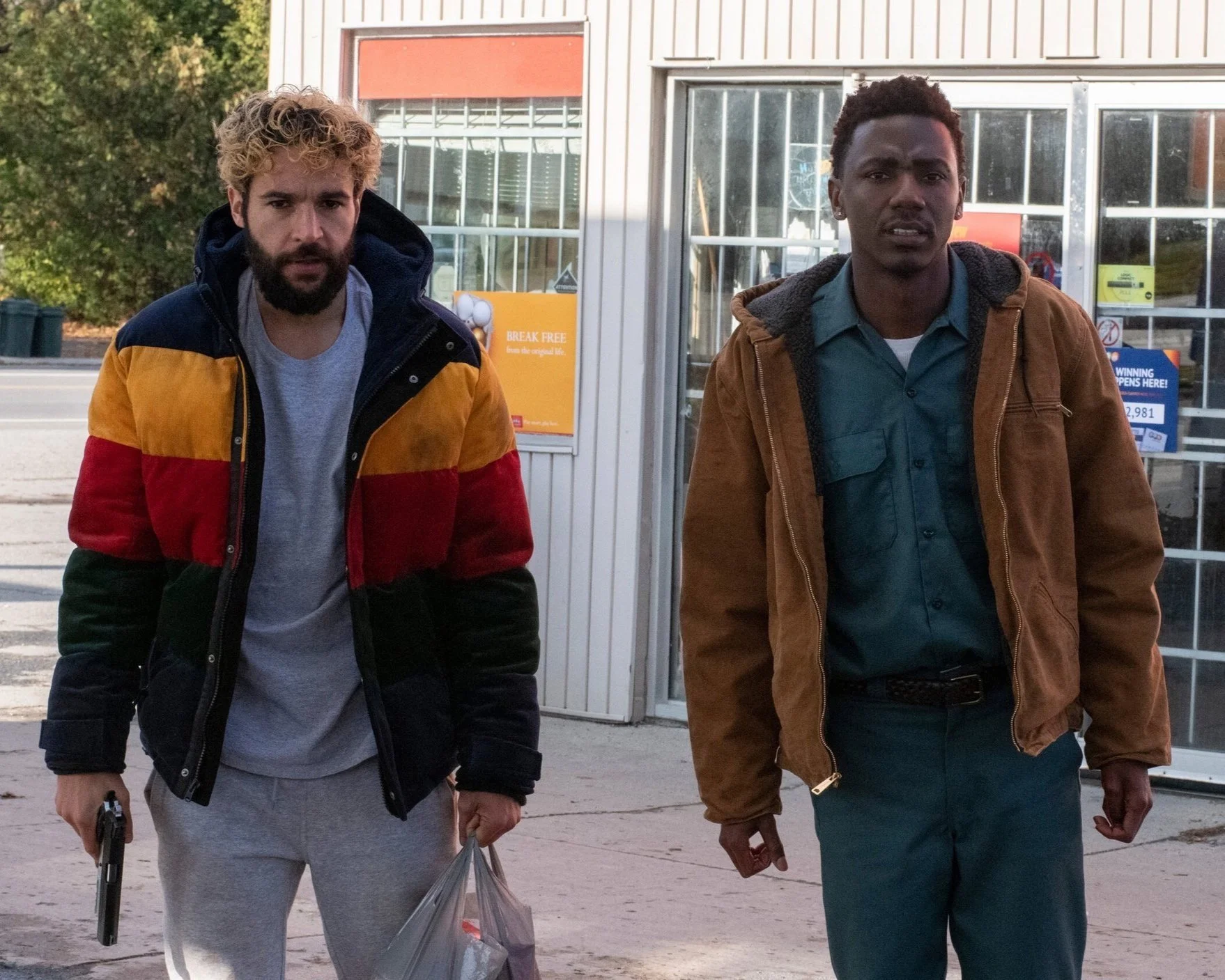The Quiet Girl's Colm Bairéad on film debut and Oscars buzz
Writer and director Colm Bairéad may have earned himself auteur status straight out of the gate with narrative feature film debut The Quiet Girl (An Cailín Ciúin).
The Irish-language film, an adaptation of Claire Keegan’s acclaimed short story Foster, is set in rural Ireland, 1981, where a quiet, neglected girl (Catherine Clinch) in a dysfunctional family is sent to live with distant relatives for the summer. But in this house where there are no secrets, she discovers one painful truth.
The Quiet Girl premiered in Australia at the Sydney Film Festival in June, where it was nominated for the Sydney Film Prize. At the first screening at the State Theatre, the coming-of-age drama received a standing ovation. “We’re really grateful to the festival and the people of Sydney,” Bairéad tells Popcorn Podcast, remembering the emotional moment he shared on stage with his wife, producer Cleona Ní Chrualaoi. “When you make a film, you’re never entirely sure how it’s going to be received, particularly outside of your home country. But the manner in which the audiences here embraced the film was remarkable.”
The 90-minute feature remains faithful to Keegan’s 2010 international bestseller – which Bairéad cried over when he first read it in 2018. “I was so in love with Claire’s work that I just wanted the film to be a vessel for what she had created. I wanted to bring it to another audience. That was the impulse, really.”
“It was a question of honouring what Claire had created in terms of the visual language of the film” – Colm Bairéad
As Foster is written in the first-person present tense, Bairéad was fascinated by the idea of viewing the adult world through a child’s perspective. “I love films that have child protagonists. I love that, oftentimes, they're not all that concerned with plot. It's more about character dynamics and atmosphere and capturing the sense of point of view.”
This was achieved with the help of cinematographer Kate McCullough (who worked on the TV adaptation of Sally Rooney’s Normal People). The director explains that the pair had many discussions “about trying to find a sort of naivety to the imagemaking” that was reflective of young Cáit’s view. The 4:3 aspect ratio, which channels the audience into Cáit’s eyes, “belongs to her character because her horizons haven't expanded yet; her understanding of the world isn't fully formed,” says Bairéad.
McCullough’s unpretentious cinematography, Emma Lowney’s (The Lost City of Z) charming production design, Louise Stanton’s (What If) character-revealing costuming and Stephen Rennicks’ (Frank, Room) gentle score capture Cáit’s timid hopefulness from Keegan’s homely narrative. “We were trying to find a simplicity of form in which something quite complex was allowed space to play out,” the reader-turned-writer explains.
On tackling an adaptation for his first feature film, Bairéad says, “I feel like I had an easy ride in some ways in that…,” he pauses. “Maybe this is just down to my own personal connection to Foster, but I felt like it was ready-made for the screen. I did have to add an opening act to the film that's not in the original, but much of what was there in the original felt so innately visual to me and lent itself quite easily to the medium of film.
“That's been my only experience so far of adaptation. So maybe I've been kind of spoiled in that regard.” He grins, continuing, “I’m sure there are other adaptations that are extraordinarily difficult.”
The drama hinges on budding star Catherine Clinch’s nuanced performance. Clinch is smaller than her age, which makes her perfect to play nine-year-old Cáit; and yet, maturity and wisdom lay behind her sapphire eyes. “She has an old soul,” Bairéad says.
The director can’t speak highly enough of the eleven-year-old actress, praising her emotional intelligence and ability to hold her own in a scene with Carrie Crowley (Elisef in Vikings) and Andrew Bennett (The Stag).
“Even though it was her first time ever acting in front of the camera, she had this wonderful ability to sort of be and allow herself to be witnessed by the camera without being self-conscious or without feeling the need to over-emote.”
From as early as pre-production, Bairéad reveals it was obvious “she had this extraordinary understanding of the emotional subtext of scenes” and allowed “all of her character's emotions to be pushed inwards”, trusting the camera would “pick up on the subtlety” of her reserved performance.
It was in this intimate acting arena where the director found respite from the sometimes overwhelming paraphernalia of set. “What I always remind myself is that, ultimately, it’s just going to be me and the core group of actors in a safe space in the middle of all this madness. And that's where I want to be. That’s a beautiful place to be.”
The Dublin-born filmmaker has almost two decades’ worth of directing experience from documentaries, TV series, TV movies and short films. “I think in terms of my own sensibility as a filmmaker,” he says, “I lean more towards the less-is-more school of filmmaking.”
His non-conclusive list of idols includes Kelly Reichardt, Andrea Arnold, Céline Sciamma and Lynn Ramsay – all women. Ramsay’s short film Gasman (1998), which also follows a child protagonist, served as a visual reference for The Quiet Girl; and her 1999 historical drama Ratcatcher inspired Bairéad to prioritise capturing the “feel” of Keegan’s story.
The Quiet Girl won seven Irish Film and Television Awards – a first for a Gaelic-language film. It has also been submitted as Ireland’s entry for Best International Feature Film at the 2023 Academy Awards.
When asked about the early Oscar buzz, the humble writer-director shifts in his seat. “It's lovely to be part of that conversation. It's lovely that people are thinking of our film in that way because I guess it means that we've been successful in trying to bring what Claire created to audiences and that it’s registering.”
He adds, “When you set out to make a film, you do kind of dream of it being embraced and celebrated, if possible. So, yeah, for that to happen is really extraordinary and something we’re very grateful for.”
“It's a story about the fact that we need love in order to grow” – Colm Bairéad
At the heart of The Quiet Girl is the beloved found-family trope. “One’s biological family isn’t always where one finds one’s happiness or one’s certainty about who they are,” Bairéad explains.
Grief, too, is present in his recent work because, he says, “grief and love go hand-in-hand; you can't grieve without having loved.” With his simple screenplay and masterful direction (the film is haunted by a foreboding tone), Bairéad will have you tearing up over a biscuit and crying over a hug.
“Nearly all of my films ultimately boil down to the question of love – oftentimes, that particular strand of love that belongs to the family unit. I've been exploring that throughout my short dramas. I feel like that will always filter into my work in some shape or form.”
Bairéad is an auteur on the rise. His pared-back, nostalgic visual style and tender thematic focus demonstrate a tenacity in crafting an emotionally striking cinematic legacy – one drama at a time.







